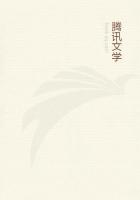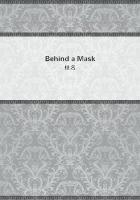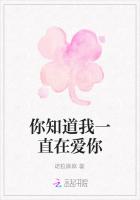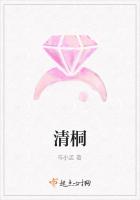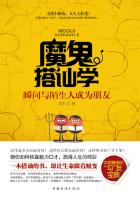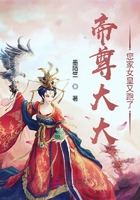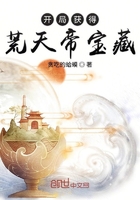They say, my lord, These highborn dames do so affect your Grace That where you go they throng like flies around you, Each seeking for your favour.
I have heard also Of husbands that wear horns, and wear them bravely, A fashion most fantastical.
GUIDO. Simone, Your reckless tongue needs curbing; and besides, You do forget this gracious lady here Whose delicate ears are surely not attuned To such coarse music.
SIMONE. True: I had forgotten, Nor will offend again. Yet, my sweet Lord, You'll buy the robe of state. Will you not buy it?
But forty thousand crowns--'tis but a trifle, To one who is Giovanni Bardi's heir.
GUIDO. Settle this thing to-morrow with my steward, Antonio Costa. He will come to you.
And you shall have a hundred thousand crowns If that will serve your purpose.
SIMONE. A hundred thousand!
Said you a hundred thousand? Oh! be sure That will for all time and in everything Make me your debtor. Ay! from this time forth My house, with everything my house contains Is yours, and only yours.
A hundred thousand!
My brain is dazed. I shall be richer far Than all the other merchants. I will buy Vineyards and lands and gardens. Every loom From Milan down to Sicily shall be mine, And mine the pearls that the Arabian seas Store in their silent caverns.
Generous Prince, This night shall prove the herald of my love, Which is so great that whatsoe'er you ask It will not be denied you.
GUIDO. What if I asked For white Bianca here?
SIMONE. You jest, my Lord;
She is not worthy of so great a Prince.
She is but made to keep the house and spin.
Is it not so, good wife? It is so. Look!
Your distaff waits for you. Sit down and spin.
Women should not be idle in their homes, For idle fingers make a thoughtless heart.
Sit down, I say.
BIANCA. What shall I spin?
SIMONE. Oh! spin Some robe which, dyed in purple, sorrow might wear For her own comforting: or some long-fringed cloth In which a new-born and unwelcome babe Might wail unheeded; or a dainty sheet Which, delicately perfumed with sweet herbs, Might serve to wrap a dead man. Spin what you will;
I care not, I.
BIANCA. The brittle thread is broken, The dull wheel wearies of its ceaseless round, The duller distaff sickens of its load;
I will not spin to-night.
SIMONE. It matters not.
To-morrow you shall spin, and every day Shall find you at your distaff. So Lucretia Was found by Tarquin. So, perchance, Lucretia Waited for Tarquin. Who knows? I have heard Strange things about men's wives. And now, my lord, What news abroad? I heard to-day at Pisa That certain of the English merchants there Would sell their woollens at a lower rate Than the just laws allow, and have entreated The Signory to hear them.
Is this well?
Should merchant be to merchant as a wolf?
And should the stranger living in our land Seek by enforced privilege or craft To rob us of our profits?
GUIDO. What should I do With merchants or their profits? Shall I go And wrangle with the Signory on your count?
And wear the gown in which you buy from fools, Or sell to sillier bidders? Honest Simone, Wool-selling or wool-gathering is for you.
My wits have other quarries.
BIANCA. Noble Lord, I pray you pardon my good husband here, His soul stands ever in the market-place, And his heart beats but at the price of wool.
Yet he is honest in his common way.
[To Simone]
And you, have you no shame? A gracious Prince Comes to our house, and you must weary him With most misplaced assurance. Ask his pardon.
SIMONE. I ask it humbly. We will talk to-night Of other things. I hear the Holy Father Has sent a letter to the King of France Bidding him cross that shield of snow, the Alps, And make a peace in Italy, which will be Worse than a war of brothers, and more bloody Than civil rapine or intestine feuds.
GUIDO. Oh! we are weary of that King of France, Who never comes, but ever talks of coming.
What are these things to me? There are other things Closer, and of more import, good Simone.
BIANCA [To Simone]. I think you tire our most gracious guest.
What is the King of France to us? As much As are your English merchants with their wool.
* * * * *
SIMONE. Is it so then? Is all this mighty world Narrowed into the confines of this room With but three souls for poor inhabitants?
Ay! there are times when the great universe, Like cloth in some unskilful dyer's vat, Shrivels into a handbreadth, and perchance That time is now! Well! let that time be now.
Let this mean room be as that mighty stage Whereon kings die, and our ignoble lives Become the stakes God plays for.
I do not know Why I speak thus. My ride has wearied me.
And my horse stumbled thrice, which is an omen That bodes not good to any.
Alas! my lord, How poor a bargain is this life of man, And in how mean a market are we sold!
When we are born our mothers weep, but when We die there is none weeps for us. No, not one.
[Passes to back of stage.]
BIANCA. How like a common chapman does he speak!
I hate him, soul and body. Cowardice Has set her pale seal on his brow. His hands Whiter than poplar leaves in windy springs, Shake with some palsy; and his stammering mouth Blurts out a foolish froth of empty words Like water from a conduit.
GUIDO. Sweet Bianca, He is not worthy of your thought or mine.
The man is but a very honest knave Full of fine phrases for life's merchandise, Selling most dear what he must hold most cheap, A windy brawler in a world of words.
I never met so eloquent a fool.
BIANCA. Oh, would that Death might take him where he stands!
SIMONE [turning round]. Who spake of Death? Let no one speak of Death.
What should Death do in such a merry house, With but a wife, a husband, and a friend To give it greeting? Let Death go to houses Where there are vile, *****erous things, chaste wives Who growing weary of their noble lords Draw back the curtains of their marriage beds, And in polluted and dishonoured sheets Feed some unlawful lust. Ay! 'tis so Strange, and yet so. YOU do not know the world.
YOU are too single and too honourable.
I know it well. And would it were not so, But wisdom comes with winters. My hair grows grey, And youth has left my body. Enough of that.

